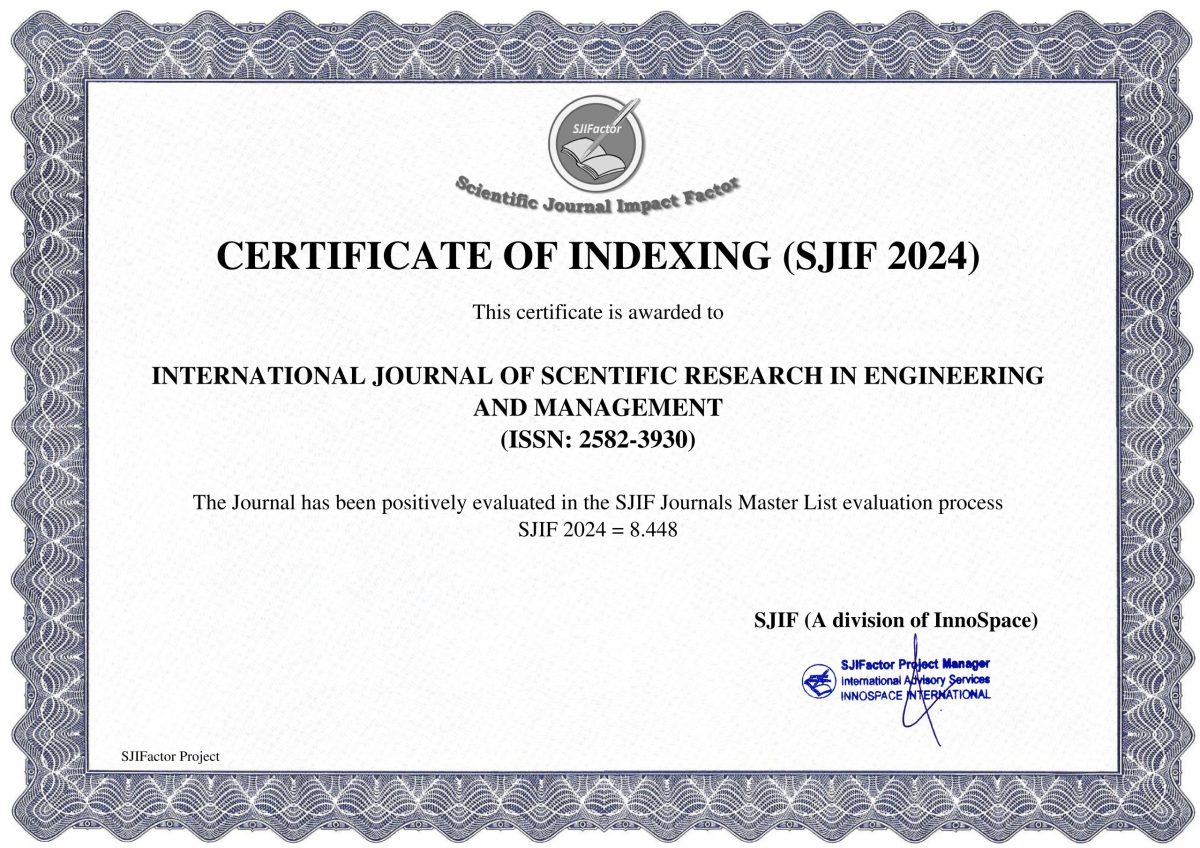- Version
- Download 32
- File Size 471.65 KB
- File Count 1
- Create Date 06/07/2023
- Last Updated 06/07/2023
TRANSFORMING EDUCATION IN THE DIGITAL AGE: A COMPREHENSIVE STUDY ON THE EFFECTIVENESS OF ONLINE LEARNING
TRANSFORMING EDUCATION IN THE DIGITAL AGE: A COMPREHENSIVE STUDY ON THE EFFECTIVENESS OF ONLINE LEARNING
Bharat Singh, Assistant Professor, School of Computer Science and Applications,
IIMT University, Meerut U.P India.
Varun Kumar Gupta, Assistant Professor, School of Computer Science and Applications,
IIMT University, Meerut U.P India.
Animesh Kumar Jain, Assistant Professor, School of Computer Science and Applications,
IIMT University, Meerut U.P India.
Dr. Tarun Kumar Vashishth, Associate Professor, School of Computer Science and Applications,
IIMT University, Meerut U.P India.
Shashank Sharma, Assistant Professor, School of Computer Science and Applications,
IIMT University, Meerut U.P India.
Abstract:
The emergence of digital technologies has transformed the education sector, reshaping the traditional model of teaching and learning. This research paper provides an in-depth analysis of the impact of digital technologies on education and highlights how it has transformed various aspects of education, including pedagogy, curriculum development, assessment, and communication. Digital technologies have revolutionized pedagogy by offering innovative teaching methods that cater to different learning styles. Multimedia tools such as videos, graphics, and animations have enhanced the learning process, making it more interactive and engaging for students. Furthermore, digital technologies have made it possible for teachers to personalize learning experiences to cater to individual students' needs and abilities. Online assessments and data analytics have enabled teachers to identify students' strengths and weaknesses and provide personalized learning experiences that enhance their academic performance. Digital technologies have also revolutionized curriculum development, making it possible for educators to design and develop courses that are flexible and adaptable to different learning environments. Digital learning platforms offer a wide range of educational resources and materials, making it possible for students to access them from anywhere and at any time. This flexibility has transformed education by making it more accessible to students who may not have access to traditional educational resources.
In conclusion, digital technologies have transformed the education sector, offering innovative teaching methods, personalized learning experiences, flexible curriculum development, efficient assessment practices, and enhanced communication and collaboration. The integration of digital technologies in education has made it possible to cater to diverse learning styles, making education more accessible and engaging for students. This research paper highlights the significant impact of digital technologies on education and provides insights into how they have transformed various aspects of education.
KEYWORDS:
Digital Age, Online Learning, Effectiveness, Comprehensive Study, Pedagogy, Curriculum Development, Assessment, Communication, Personalized Learning, Innovative Teaching Methods, Multimedia Tools, Learning Environment, Educational Resources, Real-Time Feedback, Collaborative Learning.







